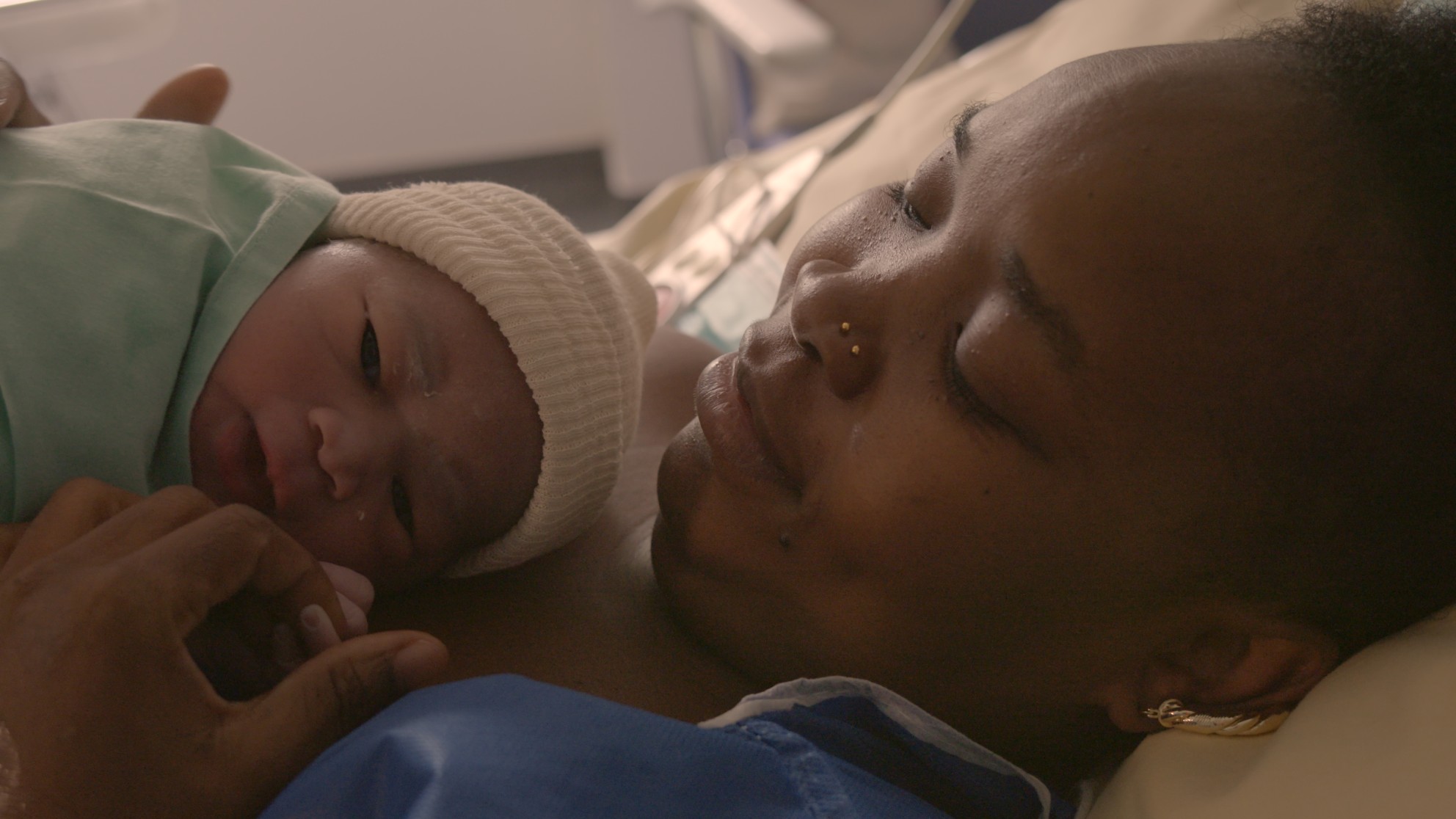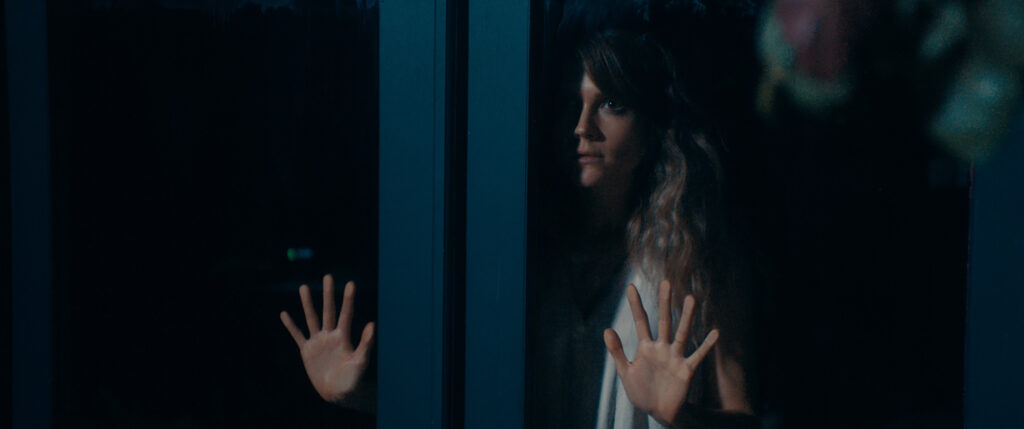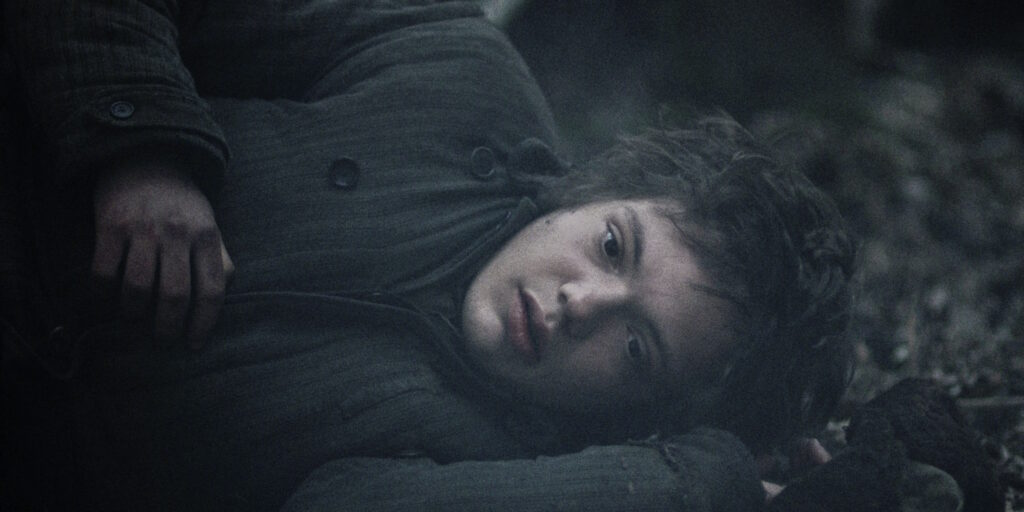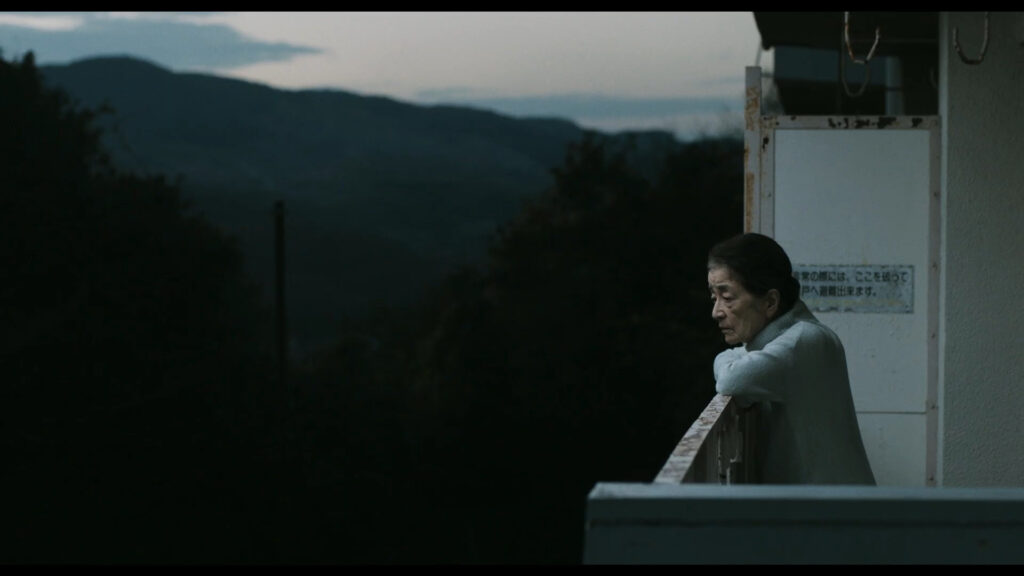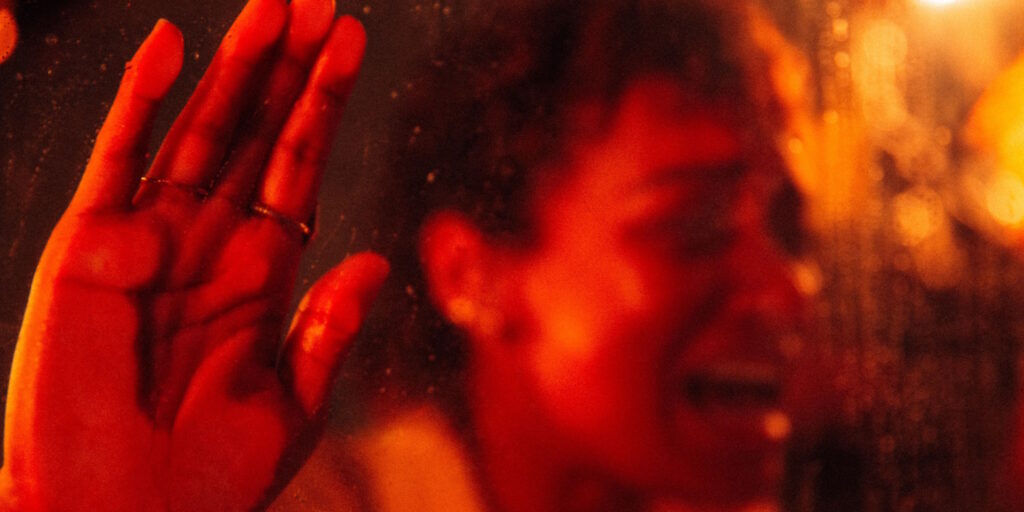He spins a pair of tongs on his finger, like a gunslinger about to take his shot and holster his weapon in style. However, this is not a dusty Main Street in the 19th-century American West. This is a hospital in modern-day France, and our tong-toting hero is grabbing gametes in a cryogenic chamber. From pregnancy to hormones to fertility to endometriosis and beyond, he is but one cog in a well-oiled machine built to address every imaginable aspect of reproductive health. Together, this aggregate of healthcare professionals represents one of many possible interpretations of the title of Claire Simon’s latest documentary, Our Body.
As Simon explains at the start, Our Body began with a suggestion from a friend who spoke highly of this particular hospital. She confesses her initial reluctance to enter such a foreboding institution due to deep-seated personal fears originating with her father’s decades-long hospitalization. However, as Simon says, she must bravely overcome her trepidation to examine this remarkable place: the public gynecology ward in Paris’s 20th arrondissement. Walking right through the front door, she spends the next 160-odd minutes inspecting the inner workings of the medical center.
Sometimes, Simon is a fly on the wall. Other times, she’s a source of reason. Occasionally, she’s even a subject herself. All the while, she maintains her unflinching look at the many different consultations, regimens, therapies, and procedures occurring behind closed doors. From seconds-old newborns to teenagers in transition, middle-age patients starting difficult journeys to elderly ones at the end of the road, Simon’s subjects touch on all the most pressing issues faced at every conceivable age — another potential manifestation of the title.
The obvious comparison is the prolific filmography of Frederick Wiseman. That said, this resemblance has more to do with the close-up, hyper-focused shooting style (not to mention sheer length) than directorial voice. As such, drawing a direct line hardly feels fair. Wiseman was undoubtedly an influence on this massive project, but Simon’s feature is not Hospital (1970) Lite. It’s very much its own thing, as evidenced by the aforementioned voiceover heard mere moments into the film (and again and again throughout), something that can’t be found in any Wiseman film to date.
Besides, Claire Simon studied under Jean Rouch — a French New Waver by association who practically outlined the cinéma vérité movement with Chronicle of a Summer (1961). This serves as a more appropriate touchstone for Our Body than anything from Wiseman, whose vérité-adjacent works of Direct Cinema wouldn’t dare to turn the camera back on the director. Simon’s involvement both in front of and behind the lens is essential. The viewer suspects this from the outset, but it becomes increasingly evident as the film progresses.
For those turned off by the prospect of a near-three-hour observational doc about a clinic, know that Our Body does a brilliant job grabbing the audience’s attention and refusing to let go until the credits roll. It’s not just about the care being administered, but about the nuances of said care. How should a mother respond when her male doctor takes an unexpectedly stern tone with her? What do physicians say about the sick when they aren’t around? Where can patients turn when they notice a concerning pattern of mistreatment from a care provider? Simon’s examinations of deeper problems within the field add layers of complexity to an already thought-provoking opus.
Recalling the fingers that spin the tongs earlier in the film, Simon again focuses on a pair of hands in one of her closing shots. Realization hits: This has been a subtle motif all through Our Body. Comforting, clinical, trembling, steady, warm, cold … from patient to practitioner, it is hands that link bodies to one another countless times a day. Here, we have a final explanation for the title, for when joined hand in hand, the people who fill the waiting areas, hallways, examination rooms, courtyards, and doctor’s offices of this unit form a single entity. “It’s our body,” one woman pleads with a crowd of protesters who have gathered outside the hospital. The director handles it all with the kind of delicate, righteous care the people of this facility deserve. The camera acts as an extension of her own hands, linking observer and subject with a sympathetic squeeze of the fingers.
Our Body screens nightly at 7:00 p.m. on Sep. 8 – 10 at the Webster University Film Series.
